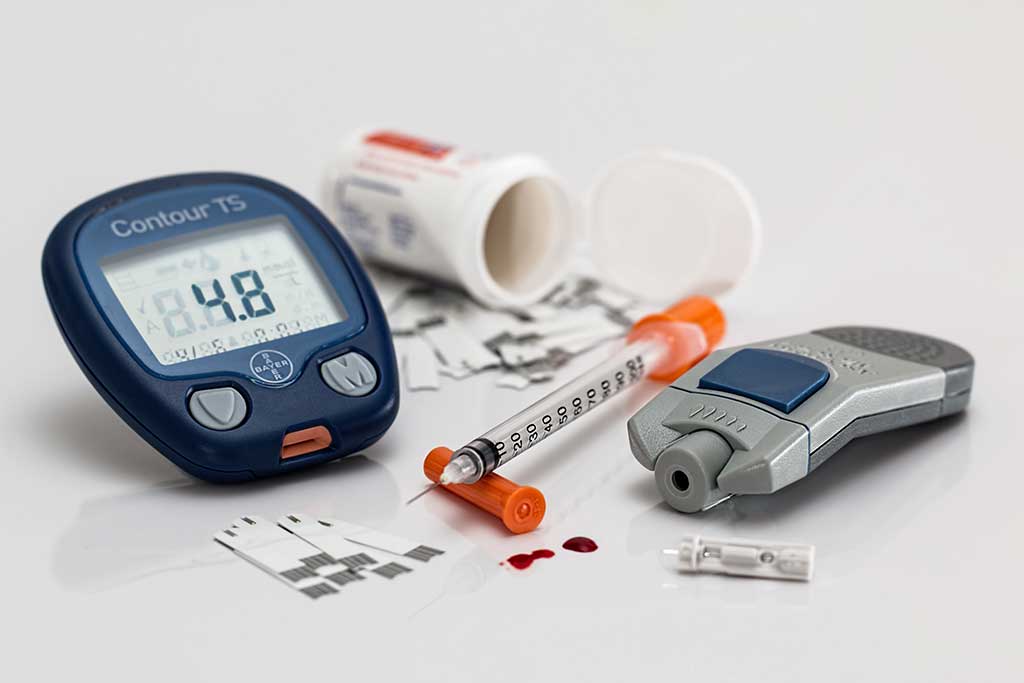Beta-blocker surgery risk
Medication
News article about a study investigating the risks linked to use of beta-blockers during non-cardiac surgery
“Beta-blockers ‘have caused 800,000 deaths’ ” reads the headline of The Daily Telegraph . It and several other news sources report that the use of beta-blockers before surgery could cost more lives than they save. The_ Telegraph_ added that patients were “a third more likely to die within a month of surgery and twice as likely to suffer a stroke”.
The news stories are based on a trial investigating the use of beta-blockers before surgery in patients who have, or who are considered to be at risk of, cardiovascular disease. Current guidelines by the American College of Cardiology suggest that beta-blockers should be used in all operations (except those on the heart) in people at risk of cardiovascular disease or in people at low risk who are undergoing vascular surgery. They are not used in all patients undergoing any surgery and even in those at risk their use is not widespread in the UK.
Beta-blockers slow heart rate and can decrease the function of the heart muscle. They are valuable drugs for the treatment of several medical conditions such as high blood pressure and for people who have suffered a previous heart attack. However, they are not suitable for everyone.
People who currently take beta-blockers every day to treat a heart problem should not be concerned by the headlines; this study looked only at the use of beta-blockers as part of surgery, not at their long-term use. Any patient starting on one of these drugs should always receive careful monitoring and follow-up. This research will undoubtedly provoke further discussion to weigh up the risks and benefits of using beta-blockers around the time of surgery in these vulnerable groups of people with cardiovascular problems.
Where did the story come from?
This research was carried out by the POISE (Perioperative Ischaemic Evaluation) study group. The study was funded by the Canadian Institutes of Health Research, the Commonwealth Government of Australia’s National Health and Medical Research Council, the Instituto de Salud Carlos III in Spain, the British Heart Foundation and the pharmaceutical company AstraZeneca, who provided the study drug. The study was published in the peer-reviewed medical journal The Lancet .
What kind of scientific study was this?
This was a multi-centre randomised controlled trial to investigate further the use of beta-blockers around the time of non-cardiac surgery after previous trials reported conflicting results.
Between October 2002 and July 2007, the researchers recruited 8,351 participants for the POISE trial from 190 hospitals in 23 different countries. They were all patients aged over 45 years who would be undergoing non-cardiac surgery and with an expected hospital stay of greater than 48 hours. All patients had either a history of coronary artery disease, peripheral vascular disease, stroke or congestive heart failure which required hospitalisation in the past three years; or they were undergoing vascular surgery; or they had any three of seven other risk factors (undergoing major chest or abdominal surgery, any history of congestive heart failure, previous mini-strokes, diabetes, impaired kidney function, were aged 70 or over or were undergoing emergency surgery).
The researchers excluded from their study any people with very low heart rate, second- or third-degree heart block (problems with heart conduction), asthma, patients already receiving a beta-blockers and patients whose doctor planned to start them on a beta-blocker around the time of surgery. Also excluded were all patients with a previous adverse reaction to beta-blockers, those who had had a coronary artery bypass in the past five years with no angina since, those on the drug verapamil (which also slows the heart rate), those considered to be undergoing low-risk surgery or those who had previously been enrolled in POISE trials.
The participants were randomly assigned to receive either the long-acting beta-blocker metoprolol succinate (4,174 people) or an inactive placebo drug (4,177 people). The first 100mg drug dose was given two to four hours before surgery (after first checking the participant’s heart rate and blood pressure were stable). A second dose was given six hours after surgery (or earlier than this if heart rate and blood pressure went above certain thresholds) and another dose was given 12 hours after this. The participant then started to take 200mg of long-acting metoprolol on a daily basis for 30 days. Heart rate and blood pressure were monitored and if they fell below certain thresholds, the study drug was withheld and started again at a lower dose once the patient was stabilised. A heart trace (electrocardiogram, or ECG) was taken of each patient 6 to 12 hours after surgery, and again on the first, second and 30th day. Regular blood samples were also taken to measure certain heart enzymes in the first few days after surgery. Heart traces were taken more frequently if there was suspicion of a heart attack.
The researchers looked at the combined outcome of cardiovascular death, non-fatal heart attack or non-fatal cardiac arrest by 30 days. The POISE group carried out statistical tests to see how taking a beta-blocker affected the risk of the outcome. They analysed all people in the treatment groups to which they were randomised regardless of whether they changed treatments or did not complete the study. The researchers carrying out data analysis were aware of which treatment the patient had been prescribed; however, the participants and the professionals providing their care were not.
What were the results of the study?
Patients who received a beta-blocker (metoprolol) were at significantly lower risk of experiencing the primary outcome (cardiovascular death, non-fatal heart attack or non-fatal cardiac arrest) by 30 days than those in the placebo group; 5.8% vs. 6.9% respectively (hazard ration [HR]: 0.84, 95% confidence interval [CI] 0.70 to 0.99). This was mainly due to there being significantly fewer heart attacks in the treatment group.
However, when looking at secondary outcomes, people in the beta-blocker group were at significantly increased risk of death, a 33% increase (HR 1.33, 95% CI 1.03 to 1.74), or having a stroke (greater than double increased risk, HR 2.17, 95% CI 1.26 to 3.74). People in the beta-blocker group were also more likely to suffer a non-fatal stroke, but people in the placebo group were more likely to suffer a non-fatal heart attack. Metoprolol significantly decreased the risk of needing heart revascularisation or of having new onset of an irregular heart rhythm (atrial fibrillation) compared with the placebo. Conversely, metoprolol significantly increased the risk of developing new low blood pressure or low heart rate.
What interpretations did the researchers draw from these results?
The researchers say that although long-acting metoprolol given around the time of surgery reduced the risk of heart attack, the need for revascularisation or the risk of developing atrial fibrillation, it increased the risk of death, stroke and clinically significant low blood pressure or low heart rate. They say that there is risk in “assuming a perioperative beta-blocker regimen has benefit without substantial harm” and that patients are “unlikely to accept the risks associated”.
What does the NHS Knowledge Service make of this study?
This study has many strengths; it was a large, blinded randomised controlled trial that used reliable methods. It gives an indication of the risks and benefits of giving a long-acting beta-blocker to a patient considered to be at cardiovascular risk, who is undergoing non-cardiac surgery and is not currently receiving beta-blocker treatment and has no contraindications to their use. For these people it provides valuable information that will undoubtedly lead to further discussion around beta-blocker use at the time of surgery.
It is important to note that these results apply only to people with these particular characteristics and not to those who take beta-blockers on a daily basis. Beta-blockers slow the heart rate and can decrease function of the heart muscle. They are valuable drugs for the treatment of several medical conditions such as high blood pressure and for people who have suffered a previous heart attack. Their cautions, contraindications and adverse effects are well known to the medical profession, and any patient starting on one of these drugs should always receive careful monitoring and follow-up.
The newspaper articles have focused on the risks and not the benefits. The primary outcome that the study aimed to investigate, of cardiovascular death, non-fatal heart attack or non-fatal cardiac arrest by 30 days, actually occurred less frequently in those taking the beta-blocker. However, overall, the balance of benefit and harm tips in favour of no beta-blocker in this patient group.
The trial does, however, have some limitations and there are two important things to note:
- It was a multi-centre trial carried out in 190 hospitals in 23 different countries. There are likely to be differences in practices and procedures. There may be also have been differences in the way outcomes were diagnosed. The researchers say that they had to exclude a number of randomisations due to “fraudulent activities” at 6 hospitals in Iran and 11 in Columbia. They say that the trial was “rigorously done” in the hospitals that contributed 88% of the primary outcomes for their trial.
- The beta-blocker used in the trial, long-acting metoprolol succinate, is not currently licensed for use in the UK. Although it may be similar in action to other metoprolol or extended-release preparations, this cannot be assumed.
This study has highlighted the need for further research into the risks and benefits of beta-blocker use around the time of surgery in these vulnerable groups of people with cardiovascular problems. Studies with a longer follow-up period will shed light on what effect beta-blockers have beyond 30 days.
Sir Muir Gray adds...
Very important topic; excellent research design; very, very important findings.






 Subscribe
Subscribe Ask the doctor
Ask the doctor Rate this article
Rate this article Find products
Find products






